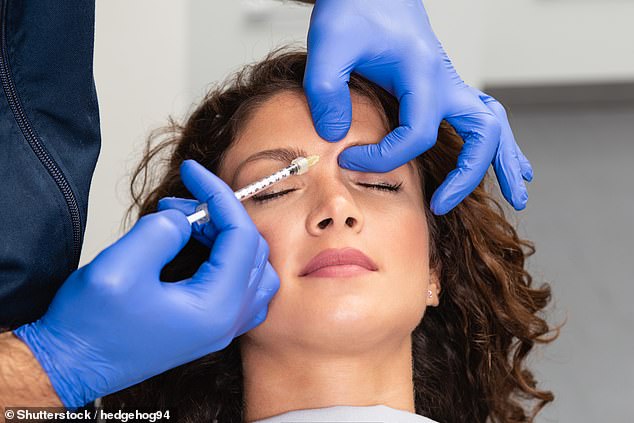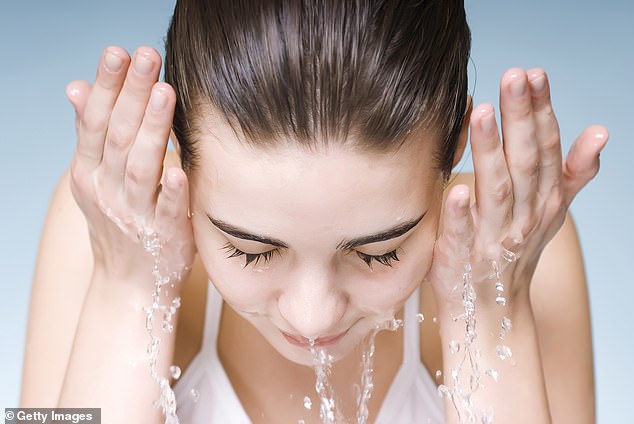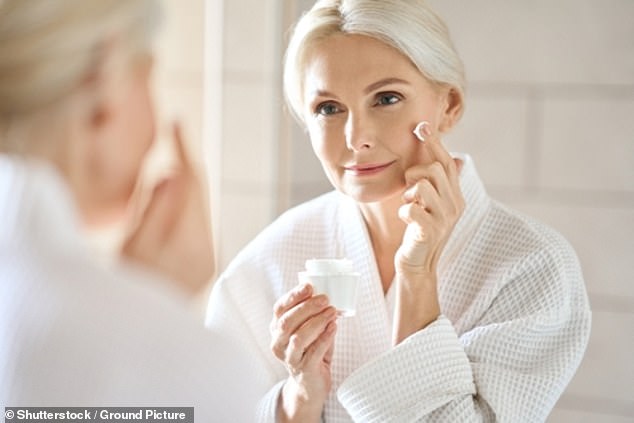- Survey Reveals 10-Year-Olds Worry About Wrinkles, Anti-Aging Skin Care
- Exposure to adult skin care content makes young children worry about aging
<!–
<!–
<!– <!–
<!–
<!–
<!–
A third of young women believe they are expected to undergo cosmetic treatments or plastic surgery to protect themselves from ageing, a shocking survey reveals.
Nearly half believe they will worry about their appearance as they age.
The Dove survey, which involved nearly 10,000 girls ages 10 to 17, found that some tweens already worry about wrinkles.
Dermatologists warned that the findings show how girls are under pressure “to look a certain way at a very young age” through social media, which is creating a “toxic culture of pressures and unrealistic beauty standards.”
The survey comes after it was revealed earlier this year that children as young as 10 use anti-aging products.

Nearly half of girls think they will worry about their appearance as they age, and many 10-year-old girls worry about wrinkles, according to a Dove survey of more than 9,400 girls ages 10 to 17. A third even think they should go plastic. surgery when they are older
Tweens are begging their parents to give them moisturizers costing around £50 a bottle as they adopt complicated skincare regimes, experts say.
Popular ingredients like retinol, which is a form of vitamin A, are popular.
While it is helpful for aging skin, it can cause redness, peeling, and rashes on children’s faces.
Other products can block the pores of teens with oilier skin, making acne worse.
Dr Emma Wedgeworth, of the British Cosmetic Dermatology Group, said the skincare routines adopted by young women were “completely unnecessary”.


Many young children have started extensive skin care routines, but experts warn that they can be harmful to young skin.
Instead, children only need to wash their faces with a mild, unscented cleanser and use a light moisturizer and sunscreen in the summer, she said.
As well as being unhelpful and potentially harmful to younger skin, it can also take a toll on your mental health, argued Dr Phillippa Diedrichs, a psychologist and body image expert at the University of West England.
“If young women feel pressured to use skin care products containing highly active anti-aging ingredients, this could harm their long-term body confidence and self-esteem, not to mention the health of their skin,” she said. Dr. Diedrichs.
These preteen girls are adding products designed for adults to their wish lists and skin care regimens, Dr. Diedrichs said.
He argues that this obsession with avoiding aging at such a young age “contributes to a toxic culture of unrealistic beauty pressures and standards.”


Preteen girls have started using anti-aging creams and begging their parents for expensive anti-aging moisturizers.
As a result of social pressures, young women are glorifying the latest trends in anti-aging skin care. Without guidance on what is age-appropriate for young skin, girls will continue to abuse and glorify anti-aging products aimed at adults even before they grow up, Dove argues.
To protect girls’ self-esteem, skincare brand Dove is highlighting the “absurdity” of girls worrying about wrinkles and giving parents and caregivers tips to stop worrying about aging.
Dove, along with Dr. Diedrichs and dermatologist Dr. Marisa Garshick, have created ‘The Gen A Anti-Ageing Talk,’ a free resource on how to talk to young people about anti-aging and beauty anxiety.
‘The Gen A Anti-Ageing Talk’ will be posted on Dove’s TikTok channel for all parents and caregivers.
